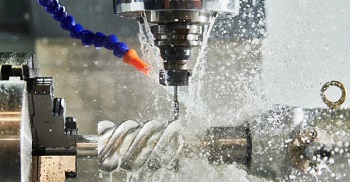Novel phosphate ester is low foaming and easy to use in a variety of metal working formulations.

Clariant has launched a new and innovative phosphate ester offering outstanding performance and superior sustainability in metal working fluid formulations.
Hostaphat 1738 combines extreme pressure performance with an excellent low foam profile and strong emulsification properties. It can be incorporated into semi-synthetic, synthetic, soluble oil and straight oil formulations and its ease of use into this variety of metal working formulations makes the new ester a prime choice for formulators and production managers.
Hostaphat 1738 also offers superior sustainability features. It is 50% bio-derived due to the natural alcohol used and contains significantly less phosphorous than standard phosphate esters.
“The theory that more is better is usually the case in our industry, with an assumption that you need more phosphorous content for an ester to perform well with regards to lubricity. With Hostaphat 1738 we have proven that not to be the case, achieving the same performance as esters that contain a higher phosphorous content, which can harm machines and the environment, ” said Jeff McManus, Business Director, North America, Industrial and Consumer Specialties.
Based on Clariant’s low foaming surfactant line, the product development team worked to further enhance this chemistry to function as both an extreme pressure additive that augments the performance of emulsifiers. This provides an additional tool for metal working fluid manufacturers and formulators to improve lubricity, emulsion stability and performance with one multi-functional product.
“Hostaphat 1738 has benefits throughout the entire life cycle of the metal working fluid. The foam reduction aids increase throughput, its stability extends the working life of a material and when it does come time to treat and discharge, the reduction in phosphorous minimizes the environmental impact, so it really does, cradle to grave, have an effect on performance and sustainability,” concluded Jeff McManus.
Subscribe to our newsletter & stay updated.